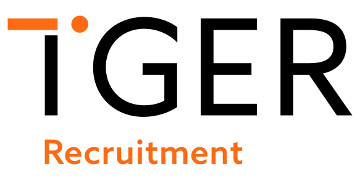Researchers from the job matching platform Adzuna focused on advertised employee benefits in job adverts, analysing 72,193 adverts in the retail sector between February 2024 and February 2025. Their findings were published today (26 March).
The research suggests that retailers have cut back on employee benefits since the rise in national minimum wage was announced on 30 October 2024. Adzuna's stats reflected a 59% decline in retailers advertising flexible working as a benefit, a 42% decline in advertising enhanced pension options, and a 23% decline in promoting an offering of private healthcare.
We asked HR leaders whether the increase in national minimum wage will change how businesses reward their employees.
Ana Anzar, CEO of parenting support services REC Parenting, stated that benefits are often the first to go when companies reduce their budgets.
She told HR magazine: "Increased national minimum wage rates coupled with political and economic uncertainty usually mean that companies scale back on benefits. When budgets get tight, benefits tend to be the first thing to get cut because reductions can be made without directly impacting headcount or salaries."
Read more: Employees "don't seem interested" in benefits on offer
Natasha Newby, director of employee benefits at financial services form ilumiti, echoed this.
Speaking to HR magazine, Newby said: “Employers will need to fund both the rise in the national living wage and the increase in national insurance contributions. Salary increases could impact some insurances like group life or group income protection as well as drive up pension contribution."
However, Newby stated that employee benefits are important as ever, especially when it comes to retaining talent.
"The conversations we are having with clients across a range of different sectors, show that providing relevant, supportive employee benefits remains as important as ever, especially when keeping and attracting the right talent remains a key objective. They realise the role that employee benefits play in creating an environment where employees feel valued.”
She added: “Using salary sacrifice can offer employers valuable savings. Anyone not doing this should be having a conversation with their employee benefit consultant as a matter of urgency.”
Although employers within the retail sector pulled back on some employee benefits in the last year, Adzuna's research found that job adverts highlighting enhanced paternity and maternity leave had increased by 23% since October 2024.
Research from technology communications company Vodafone published on Monday (24 March) estimates that family-friendly policies and enhanced parental leave could allow up to 440,000 more parents with young children to return to the workforce.
It also showed that three quarters (77%) of new parents reported feeling ‘burnt-out’ following their return to work, and that half (52%) still feel this way within a month of returning. Three quarters (78%) of new parents surveyed also reported better work-life balance when being able to use flexible working policies.
Read more: Violence against retail staff escalates
Companies should analyse which benefits impact employees the most, stated Anzar, suggesting that parental leave is often a key impactful benefit.
Speaking to HR magazine, she said: “Companies should critically analyse which benefits they should keep because they are making a difference to their employees and which ones they should stop offering because they do not make an impact.
“There is evidence that paid parental leave is a highly valued employee benefit. Many employees prioritise this benefit when looking for new jobs. Paid parental leave helps attract and retain talent and it supports parents’ and their families’ mental health.”
Andrew Healy, chief executive of healthcare plan provider, Medicash, emphasised the importance of investing in employee wellbeing, despite the rise in employer costs..
He told HR magazine: "We’ve seen continued resilience in demand for healthcare cash plans. Despite financial pressures, employers are reluctant to remove this benefit because it remains one of the most cost-effective ways to support employee wellbeing.
"Employers are increasingly recognising the need to do more. We’re seeing a shift toward more holistic, preventative support – benefits that help people stay well and manage day-to-day health needs without significant personal cost."
Although some employees will need benefits that impact them in the short term, it is crucial for employers to look ahead, said Newby.
She continued: “While there are clearly employees that need short-term help, who can be supported through initiatives such as discounts and flexible working arrangements, it’s important to also look ahead.
“For example, providing relevant, practical financial education which helps employees to understand and take more control over their finances will give them the skills they need to build a more secure future for themselves and their families.”










